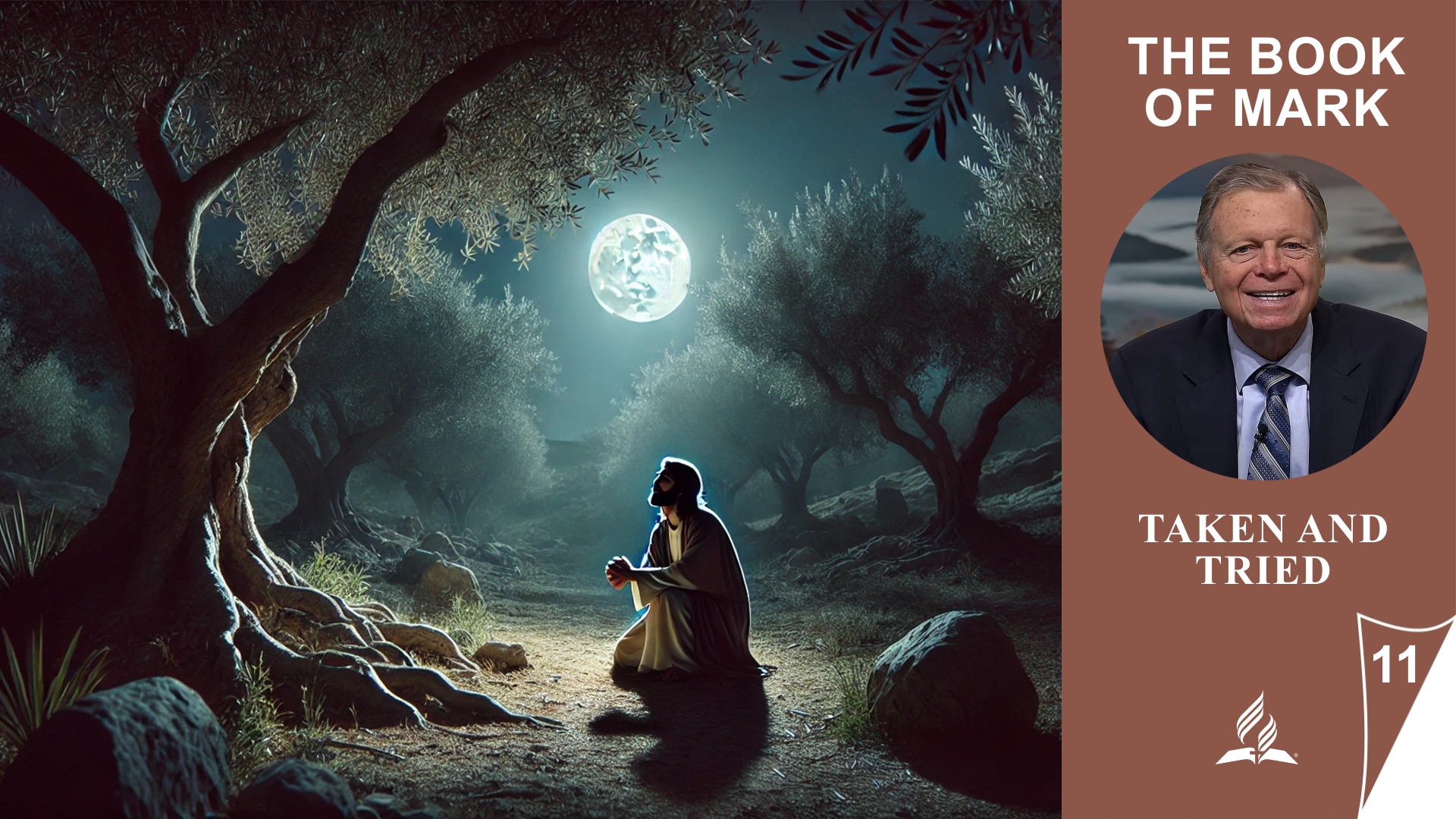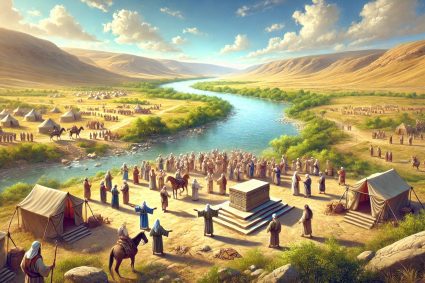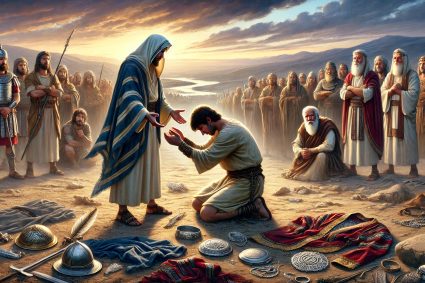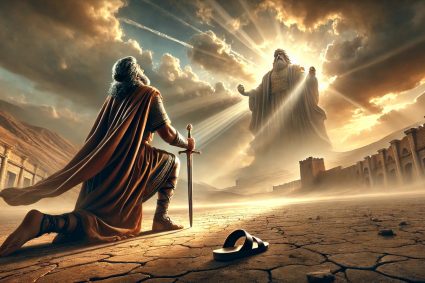
Series THE BOOK OF MARK with Pastor Mark Finley |
Lesson 11.Taken and Tried |
Betrayal and Faithfulness: Jesus’ Final Path to Crucifixion |
Lesson 11 deals with the crucial events of Jesus’ last hours before His crucifixion. In the Garden of Gethsemane, Jesus is betrayed by Judas and arrested by the religious leaders. Despite the impending suffering, Jesus remains resolute in fulfilling the divine plan. In contrast, the disciples flee in fear, and Peter denies Him three times. Before the Sanhedrin, Jesus boldly testifies to His identity as the Messiah, which leads to His condemnation. This lesson highlights the themes of betrayal, denial, and Jesus’ faithfulness until the end.
Memory Text: Mark 14:36 – “And He said, ‘Abba, Father, all things are possible for you. Take this cup from Me; nevertheless, not what I will, but what You will.’ ”
Content:
11.1 Unforgettable
Devotion and Betrayal: An Unforgettable Contrast
In Mark 14:1–11, two stories are intertwined: the plan of the religious leaders to kill Jesus and the act of a woman anointing Jesus with precious perfume. These stories stand in stark contrast to each other. While the woman honors Jesus out of love and devotion, Judas betrays Him out of greed. Jesus describes the woman’s act as “good” and says it will be proclaimed in memory of her throughout the world. Conversely, Judas’ betrayal will also be unforgettable, but for entirely opposite reasons. This contrast between devotion and betrayal underscores the significance of both actions in the context of Jesus’ Passion.
11.2 The Last Supper
The New Covenant: Jesus’ Sacrifice and the Promise of Salvation
The Last Supper in Mark 14:22–31 has profound significance for the Christian faith, as Jesus establishes a new covenant here. The bread symbolizes His body, and the wine represents His shed blood, sealing the new covenant with God. This act recalls the covenant sealed by blood in Exodus 24:8 and marks a transition from the Passover to the new order of salvation. Jesus is depicted as the Lamb of God, whose sacrifice brings about the redemption of humanity. Despite the grim prediction that the disciples will forsake Him, Jesus offers hope through the announcement of His resurrection and the promise of meeting them in Galilee.
11.3 Gethsemane
The Cup of Suffering: Jesus’ Prayer and Acceptance of the Divine Will
In Gethsemane, Jesus prayed that the cup of suffering might pass from Him, yet only if it were God’s will (Mark 14:36). He expressed His deep, familial bond with God by addressing Him as “Abba, Father.” Despite His plea, His prayer was not answered in the sense of sparing Him from suffering. Instead, Jesus submitted to the divine will to enable the redemption of the world. The disciples, who should have supported Him, were asleep, highlighting His isolation and the forthcoming betrayal. In the end, Jesus was prepared to face His fate, while the disciples remained unprepared.
11.4 Leaving Everything to Flee from Jesus
Betrayal and Flight: The Fulfillment of the Divine Plan Despite Human Weakness
In Mark 14:43–52, Judas’ betrayal is a crucial moment in the plan of salvation. Judas betrays Jesus with a kiss, a sign of friendship, which accentuates the heinousness of his act. Despite the chaos that erupts during Jesus’ arrest, Jesus reminds them that all this is happening to fulfill the Scriptures. This underscores that God’s will is accomplished even through human betrayal and violence. The disciples’ flight reveals their fear and weakness, especially in the case of the young man who leaves everything to run away from Jesus—a symbol of human tendency to avoid suffering.
11.5 Who Are You?
Courage and Denial: The Contrast Between Jesus’ Steadfastness and Peter’s Weakness
In Mark 14:60–72, the contrast between Jesus and Peter is evident. While Jesus stands before the Sanhedrin and boldly reveals the truth about His identity as the Messiah, Peter outside denies his association with Jesus out of fear and weakness. Jesus remains steadfast despite false accusations and mistreatment, while Peter denies Him three times and ultimately breaks down when the rooster crows and he remembers Jesus’ prophecy. This contrast teaches us the importance of faithfulness and courage under pressure, showing that human weakness is not the end—Peter’s remorse points to the possibility of repentance.
11.6 Summary
Betrayal, Denial, and Steadfastness: Jesus’ Path Before the Court
Lesson 11 focuses on Jesus’ arrest and trial, beginning with Judas’ betrayal in the Garden of Gethsemane. Despite the chaos, Jesus remains calm and submits to the divine plan, while His disciples flee. Before the Sanhedrin, Jesus openly testifies to His identity as the Messiah, leading to His condemnation. Simultaneously, Peter denies Jesus three times out of fear. These events highlight the contrast between Jesus’ steadfastness and the disciples’ human weakness, yet there remains hope for repentance and redemption.
(Visited 56 times, 1 visits today)




















